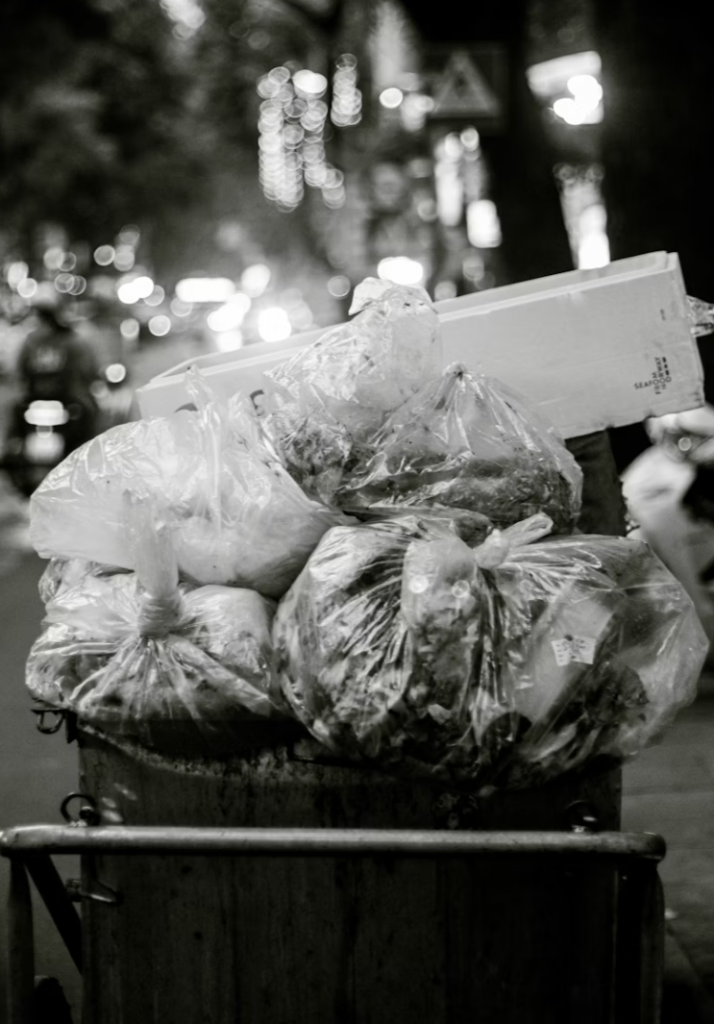Introduction: The Rise of Compostable Trash Bags
Over the past few years, eco-conscious consumers have sparked a green revolution—and compostable trash bags are leading the charge. But which ones are truly worth your money and your conscience? We’ve tested a variety of options to bring you a list of the most reliable, sturdy, and truly compostable trash bags in 2025.

What Makes a Trash Bag Compostable?
Before tossing one into your bin, it’s essential to understand what defines a compostable bag.
Materials Used
Compostable bags are typically made from plant-based materials such as cornstarch, PLA (polylactic acid), or PBAT (a biodegradable polymer). These materials break down in composting environments without leaving toxic residue.
Certification Standards
The gold standard for compostable certification includes the US ASTM D6400 and EU EN 13432 certifications. Bags with these markings will decompose in industrial composting facilities and sometimes even in home setups.
Why Switch to Compostable Bags?
Compostable trash bags aren’t just a fad—they’re a necessity for a cleaner future.
Environmental Benefits
Unlike traditional plastic, compostable bags break down into biomass, water, and CO₂. They don’t leave behind harmful microplastics or contribute to ocean pollution.
Performance Comparisons
You might think they’re flimsy, but modern compostable bags are surprisingly tough—rivaling many conventional plastic bags in durability.
Key Features to Look For
Here’s what we prioritized during testing—and what you should keep in mind when buying.
Size and Strength
Check the gallon capacity to match your bin size. We found 13-gallon bags to be the sweet spot for kitchen use, while smaller 3-gallon ones work well for countertop bins.
Odor Control and Leak Resistance
Look for multi-layer designs or reinforced bottoms that prevent leaks and help trap odors, especially for food waste.
Shelf Life and Storage Tips
Compostable bags can degrade over time if stored improperly. Keep them in a cool, dry place and use within 12 months of purchase for best performance.
Tried & Tested: Top Compostable Trash Bags in 2025
After rigorous testing, these four brands emerged as top performers across multiple categories.
1. UNNI 100% Compostable Bags
Features
- Made from corn starch
- Certified by US ASTM D6400 and EU EN 13432
- Available in 2.6, 3, 13, and 33-gallon sizes
Pros and Cons
Pros
✓ Tear-resistant
✓ BPI certified
✓ Odorless material
Cons
✗ Can degrade quickly if stored improperly
2. Green Earth Compostable Bags
Features
- Durable and tear-resistant build
- Certified for both home and municipal composting
- Made with non-GMO materials
Pros and Cons
Pros
✓ Low environmental impact
✓ Multipack affordability
✓ Fits snugly in most bins
Cons
✗ Thinner compared to plastic bags
✗ Slight odor if overfilled with wet waste
3. BioBag Certified Compostable Trash Bags
Features
- Made in the USA
- Certified compostable by BPI and OK Compost Home
- Excellent for organic waste disposal
Pros and Cons
Pros
✓ High breathability reduces moisture
✓ Ideal for kitchen food scraps
✓ Minimal packaging
Cons
✗ Not great for heavy loads
✗ Slightly more expensive
4. Hippo Sak Plant-Based Bags
Features
- Extra-strong with reinforced bottom seal
- Made from sugarcane-based resin
- USDA certified biobased product
Pros and Cons
Pros
✓ Extremely durable
✓ Tear- and puncture-resistant
✓ Large sizes available
Cons
✗ Not backyard compostable
✗ Bulk packaging only
How We Tested These Bags
Real-world use always tells the truth—and that’s how we approached our evaluation.
Real-Life Usage Scenarios
We used each brand for 14 days, collecting daily household waste including food scraps, bathroom trash, and compostable packaging.
Decomposition Timeframe
All bags were tested in both municipal compost facilities and backyard compost setups. While industrial composting broke bags down in 90 days, only BioBag and Green Earth showed promise in home bins.
Composting at Home: Best Practices
Ready to go green at home? Here’s how to do it without the stink and mess.
Indoor Compost Bin Compatibility
Smaller compostable bags fit perfectly in countertop compost bins. Pair them with carbon filters to keep your kitchen fresh.
Outdoor Compost Guidelines
Avoid overfilling, and turn the pile regularly. Mix compostable bags with yard waste for faster decomposition.
Common Myths About Compostable Trash Bags
Let’s clear up a few misunderstandings.
“They All Break Easily”
Not true. Modern manufacturing has strengthened the structure of most compostable bags. When used correctly, they’re just as dependable.
“You Can Compost Them Anywhere”
Wrong again. Some bags require industrial composting conditions. Always check for “OK Compost Home” or equivalent labels if you’re composting in your backyard.
Final Thoughts
Compostable trash bags are more than just a feel-good purchase—they’re a practical, planet-forward solution to a massive waste problem. While they may cost a bit more, their performance and environmental benefits justify the price tag. If you’re serious about reducing your plastic footprint, switching to one of our top-tested picks is a no-brainer.
FAQs
1. Can compostable bags be used for regular trash?
Yes, but it’s best to use them for compostable or organic waste to maximize their purpose.
2. How long do compostable trash bags take to decompose?
In industrial composting, about 90 days. In home compost setups, it can vary between 3–6 months.
3. Are compostable and biodegradable bags the same?
No. Compostable bags break down into non-toxic elements; biodegradable bags may leave microplastics behind.
4. Can I store compostable bags in my garage?
Only if it’s cool and dry. High heat and humidity will speed up degradation.
5. Do compostable bags smell worse than plastic?
Not really. Many are odor-neutral, but it’s best to empty them regularly to avoid buildup.


